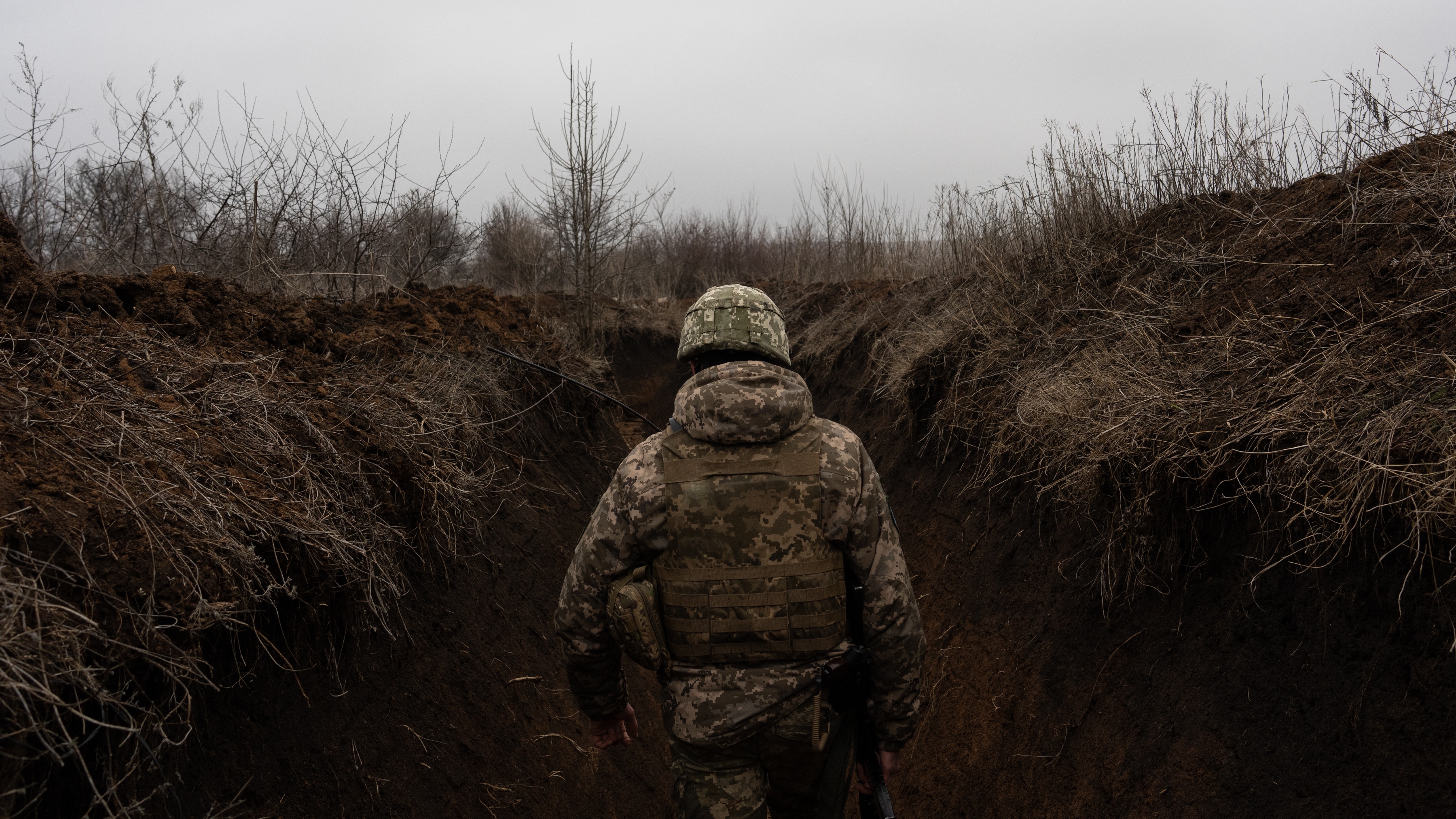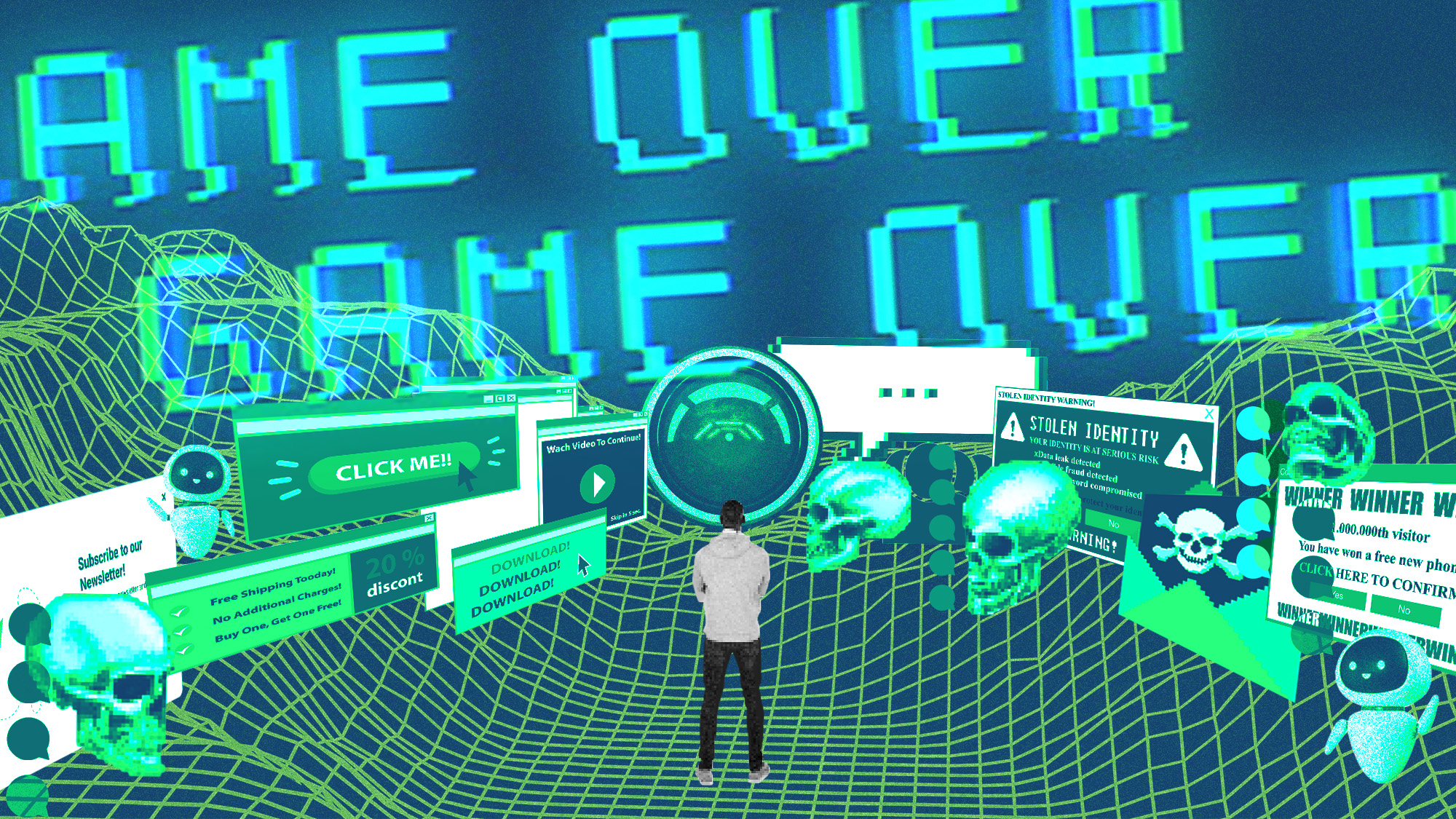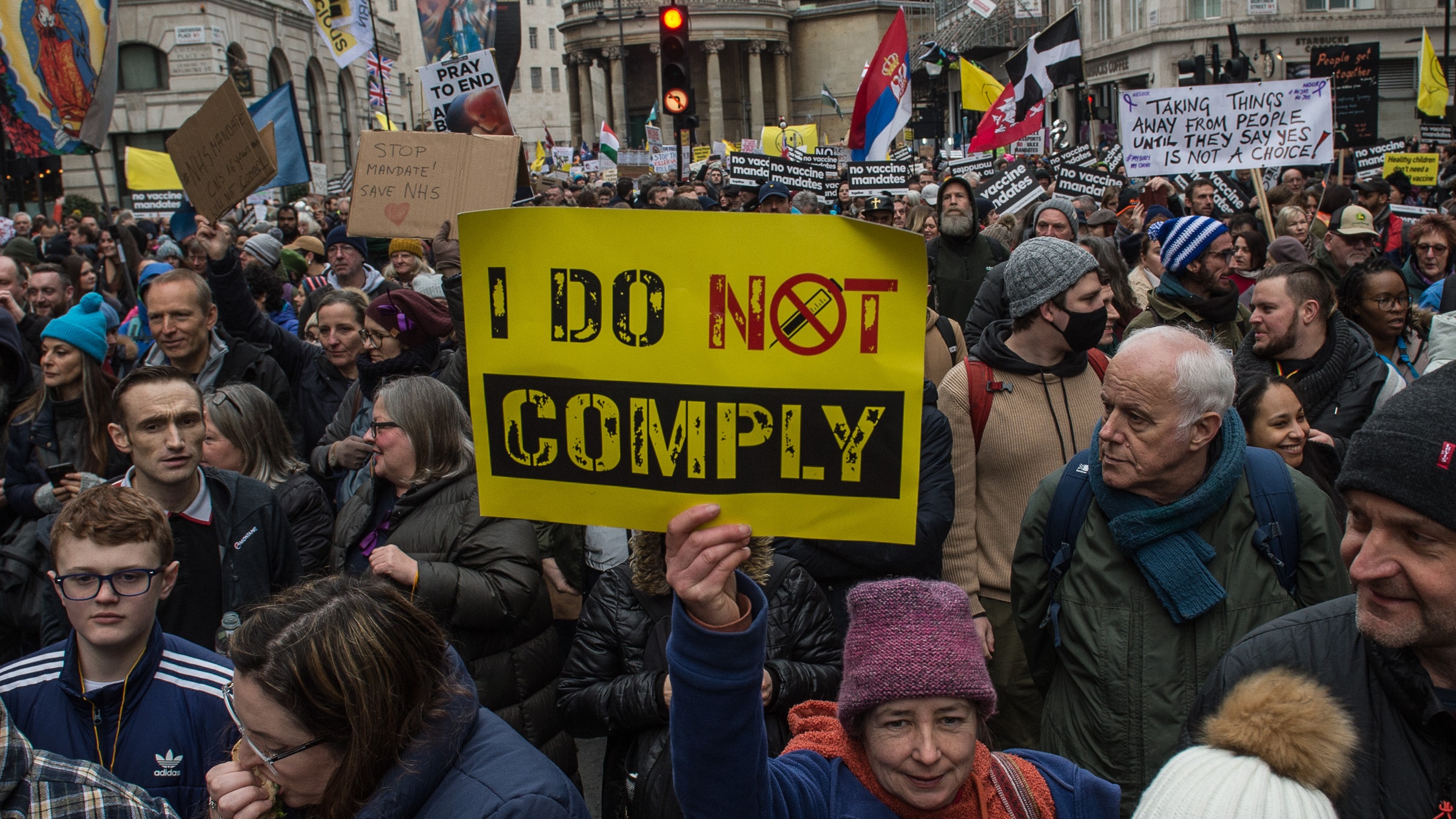What is a ‘false flag’ operation?
US warns that Russia could launch a fake attack as a justification for war

A free daily email with the biggest news stories of the day – and the best features from TheWeek.com
You are now subscribed
Your newsletter sign-up was successful
The US has claimed it has intelligence that Russia may be planning a so-called “false flag” attack as a pretext for an invasion of Ukraine as early as this week.
Sources told The Washington Post that a false flag operation was “discussed in a quickly convened meeting in the White House Situation Room”, after which Joe Biden renewed calls for all Americans to leave Ukraine immediately.
While the “precise timing and nature” of Russia’s plans remain “unclear”, officials in multiple capitals “concurred that the intelligence appeared to show that Russia is in the final stages of preparing to mount an invasion”.
The Week
Escape your echo chamber. Get the facts behind the news, plus analysis from multiple perspectives.

Sign up for The Week's Free Newsletters
From our morning news briefing to a weekly Good News Newsletter, get the best of The Week delivered directly to your inbox.
From our morning news briefing to a weekly Good News Newsletter, get the best of The Week delivered directly to your inbox.
“Moscow is actively trying to create a casus belli” – a justification for war – one official told the paper.
National security adviser Jake Sullivan said the Biden administration was “watching very carefully” for signs of a false flag operation, telling CBS that Russian intelligence services could “conduct some kind of attack on Russian proxy forces in eastern Ukraine or on Russian citizens, and then blame it on the Ukrainians”.
He added that Russian media is “laying the groundwork” by “trying to condition their public that some kind of attack by the Ukrainians is imminent”.
This is not the first time the US has “publicly called out Moscow for potential false flag tactics”, said Politico. Earlier this month, the White House said Russia could be planning to film a “fabricated attack by Ukrainian forces” as a justification for an invasion.
A free daily email with the biggest news stories of the day – and the best features from TheWeek.com
What is a false flag operation?
“False flags refer to the misuse of literal flags to disguise the identity of a military force,” said USA Today. But the tactic “generally refers to attempts to disguise identity or motivation”.
False flag conspiracy theorists believe that “powerful forces routinely arrange massacres or terrorist atrocities, and make it appear as if some other individual or group did them”, in order to achieve “sinister political goals”, said The Guardian.
Alleged victims or witnesses are purported to be “crisis actors”, trained and paid to “pose as survivors of various newsworthy massacres to advance a political agenda”, said Vox.
In the wake of the 2013 Boston Marathon bombing, Dan Bidondi, a radio host on right-wing conspiracy network InfoWars, suggested that the atrocity was in fact “ a staged attack to take our civil liberties and promote homeland security”, The Atlantic reported.
Many theorists also believe that America’s gun violence crisis has been manufactured in order to promote stricter gun control laws and disarm the populace, paving the way for government tyranny.
But while people are generally familiar with so-called false flag operations from conspiracy theories, “they may not associate the term with the actions of nations”, said USA Today.
“False flags are important because they can help destabilise an opponent,” said Jason Blazakis, from the Middlebury Institute of International Studies and an expert on special operations research.
They can allow “weaker states to project more power than they actually have”. Blazakis added that a potential false flag operation from Russia “makes a lot of sense” as Moscow is the weaker power compared with the US and Nato.
Romeo spies
During the Cold War, the East German secret police sent “Romeo” spies into West Germany as part of a false flag intelligence gathering operation.
Stasi spies “seduced secretaries working in Bonn” and “tricked them into handing over secrets”, said the BBC. More than 30 women were later prosecuted for spying after the fall of the Berlin Wall and the disintegration of the Soviet Union.
One woman, Gabriele Kliem, was “watched for two years” before she was seduced by a Stasi spy she believed to be her lover, and to whom she handed over information about “training plans for tanks and guns”. She believed she was giving the information to a “western agency”, rather than to the Soviets.
Other notable tragedies have been dubbed false flag attacks, but the claims are unfounded and baseless conspiracy theories.
9/11
The 9/11 attacks have become a favourite topic for conspiracy theorists, many of whom assert that the coordinated plane hijackings that took the lives of nearly 3,000 people were not orchestrated by the al-Qa’eda terrorist network.
So-called truthers believe that the attacks were actually planned by the Bush administration, or some other state actor, “to provide a basis for war in the Middle East”, The Guardian said.
Sandy Hook shooting
US radio show host and conspiracy theorist Alex Jones popularised the theory that no one really died at Sandy Hook Elementary School, in Newton, Connecticut, on 14 December 2012.
Jones claimed that the 20 students and six staff members shot dead by 20-year-old Adam Lanza “were acting for the cameras”, The Guardian reported, and that “parents had faked their own children's deaths”.
7/7
On 7 July 2005, four suicide bombers detonated four explosive devices in the English capital - three on the London Underground and one on a double-decker bus, killing a total of 52 people and injuring hundreds more.
Theorists have claimed that the bombs that went off on the Tube trains “were actually under the floors of the vehicles and not in the alleged plotters’ backpacks”, The Daily Telegraph reported.
In an interview on US radio programme This American Life, survivor Rachel North said she had been harassed by online trolls who posted comments calling her a liar on her blog about the tragedy.
Parkland shooting
The 14 February 2018 shooting at Marjory Stoneman Douglas High School, in Parkland, Florida, that left 17 people dead fuelled calls for tighter gun control laws in the US. But theorists seized upon this to claim survivors of the shooting were actually crisis actors.
Rubbishing the allegations, Brooke Binkowski, managing editor of fact-checking website Snopes.com, told CNN: “These mass shootings – who would fake these? You can’t fake these horrible situations. I’ve covered their aftermaths myself and you cannot fake the smell of blood nor the way phones ring and ring and ring as people desperately try to talk to their loved ones, one last time.”
-
 What is the dead internet theory?
What is the dead internet theory?The Explainer Reality has 'begun to mirror' the conspiracy that the vast majority of internet activity is generated by bots
-
 The conspiracy theorists cashing in on YouTube’s algorithms
The conspiracy theorists cashing in on YouTube’s algorithmsIn the Spotlight One anti-vaccination campaigner nets £500,000 a year from advertising on video platform


